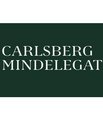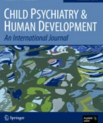Dumit@IMC

Professor Joe Dumit, University of California Davis, US will be a visiting guest researcher at IMC through April. From the AUFF IMC has received funding for the project titled: Critical Collaborations between Anthropology, Cognitive Science, and Data Science.
Bio of Joseph Dumit:
Joseph Dumit is Director of the Institute for Social Sciences, Chair of Performance Studies, and Professor of Science & Technology Studies, and of Anthropology at the University of California Davis. He is co-founder of the ModLab for game studies and game development (currently making a game on fracking), working with the KeckCAVES on 3D development for science and the arts, and developing a new "data studies" program for undergraduates. His most recent book is on pharmaceutical marketing and clinical trials called Drugs for Life: How Pharmaceutical Companies Define Our Health (Duke University Press, 2012). Previously he wrote about neuroscientists making brain images, Picturing Personhood: Brain Scans and Biomedical Identity (Princeton University Press, 2004), and co-edited three books: with Gary Lee Downey, Cyborgs & Citadels: Anthropological Interventions in Emerging Sciences and Technologies; with Robbie Davis-Floyd, Cyborg Babies: From Techno-Sex to Techno-Tots, and with Regula Burri, Biomedicine as Culture. He was an editor of the journal Culture, Medicine & Psychiatry. He is currently writing about flowcharts, neuroscience and computers; movement and improvisation; and social science methods. More detail here: http://dumit.net/joe/ and cv here: http://dumit.net/cv/
During the stay Joe Dumit will be involved in the following activities:
Embodied Creativity and Interdisciplinary Collaboration
Friday April 13 (9-12), Friday, April 20 (9-12), Thursday, April 26 (9-12)(IMC).
Hands on workshop,, details to follow
Seeing, Scaling and Story-Making: Haptic Creativity and Responsive Media Environments in Science
Tuesday, April 17 11-13 (IMC)
Abstract: This paper analyzes how researchers are "moved" by engaging their data bodily to invent new metaphors: haptic creativity. Through temporal and spatial scaling, we find experimentalists playfully caught up in prolonged encounters with their data, instruments and stories. As one scientist explained, “The give and take, back and forth between you and the data suggests what to do next in the experiment.” A temporal slice into what Hans-Jorg Rheinberger calls experimental systems. In turn, I discuss the the improvisational lessons learned at scales from software design to presentational modes and artistic practice to funding restructuring. This work was conducted in collaboration with the KeckCAVES and ModLab (UC Davis) and Natasha Myers (York U), and based historical and anthropological fieldwork with live-cell imaging biologists, 3D immersive visualization-using (CAVE) geologists, and frog-listening neuroscientists.
Ethnographic methods in the digital age
Wednesday, April 18 (Department of Anthropology, Moesgaard, (13-16:30):
Working description: Presentation of new approaches to ethnography using digital tools, and studying digital cultures. Examples include massively distributed "online" communities (gameplayers, scientists, patients), "interface" ethnography (fieldwork, interviewing, and sharing via screens), and methods combining online and offline research (since everyone mixes these differently). Particular focus will be given to para-ethnographic approaches where the anthropologist of science is a full participant in scientific and data-driven experiments. Participants will be given readings and small assignments in advance. Opportunities for exploring their research topics as data-networks, as digital games, and collaborative projects in small groups will be provided.
Data Anthropology
Monday, April 23, 10-12 (IMC):
The seminar will give an overview of possibilities, challenges and perils in data science as seen from an anthropological point of view -- aimed at those who work with data tools as well as anthropologists. Beyond studying the roles of data in society, ethnographers have been studying data practices and algorithm development, collaborating with data scientists, and applying comparative methods to data ontologies. Examples include data archaeology (tracing the lifecycles and sociology of data), bioethnography (combining big data and ethnography), and critical data science (collaborative visual interpretation of large datasets, using e.g., haptic 3D virtual environments).
Improvisiong science
Asaf Bachrach guest lecture
Wednesday, April 25, 13-15 (IMC)
As anyone who has practiced dance improvisation (e.g. traditional dances, social dancing, contact improvisation) can attest to, improvising in a group or with a partner often evokes a subjective sense of “togetherness”. In recent years the study of “togetherness” has gained interest within social neuroscience and psychology (De Jaegher & Di Paolo, 2007). Togetherness has been reported and studied in a variety of contexts but in particular in the case of joint-movement or joint-action. The focus of most of these studies and associated theoretical models has been temporal synchronicity and/or mirroring of movement between partners (Dahan et al., 2016).
Our transdisciplinary project “from joint improvisation to interaction” (ICI), where dancers, scientists, and philosophers research together through movement, includes studio explorations of the emergence and dynamics of togetherness during dance improvisation. By confronting our practices of improvisation with the above empirical research, we observe that while the empirical research focuses on synchrony, togetherness in dance improvisation is not limited to it. Phenomenologically, it seemed to us that togetherness is less the consequence of synchrony per se than of the subtle intersubjective negotiations it requires.
In order to shed further light on the subtleties of how and when "togetherness" occurs, we designed variations on existing paradigms (such as the mirror game, Noy et al 2011, and conversational turn taking, Himberg et al, 2015) and created novel improvisational scores inspired by work of Lisa Nelson, Meg Stuart and others. In this talk, I will present a number of these GIGs (group improvisation games), discuss the design principles that guided their development, and share some preliminary results.



